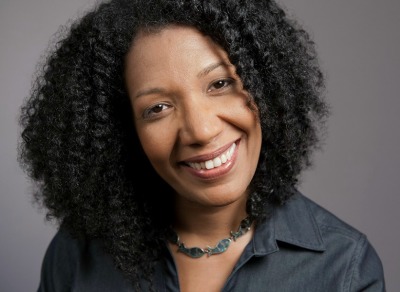'Forgive Us'

I attended Catholic school for one year as a child. My second-grade year in Philadelphia's St. Athanasius left me with a strong sense of the mystery of the church. The most mysterious space there was the confessional booth. I wasn't allowed to enter because I wasn't Catholic, so I just sat and watched others enter with pinched brows. Then they would exit with peace painted over their faces.
There is a scene in the book Blue Like Jazz where author Donald Miller sets up a confessional box in the center of the Reed College campus. But Miller's confessional worked in reverse. Students of Reed, which is known as the most liberal campus in the country, entered the confessional booth with curiosity, cynicism, skepticism, or worse—to disprove this thing called Christianity. But what they encountered upon entry was disarming—even healing. Rather than prompts to confess their sin, Miller sat on the other side of the veil and confessed of the sins of the church. This was a revolutionary act in the context where, according to Gabe Lyons and David Kinnaman's modern classic, UnChristian, the general consensus about Christians is decidedly negative.
The authors of Forgive Us: Confessions of a Compromised Faith (Zondervan, September 2014) took Miller's cue. We thought: What if the church at large began to own its sin and confessed it to the world? And what if we took those confessions and worked them out through active repentance?
We remembered God's promise in 2 Chronicles 7:14: "If my people who are called by my name humble themselves, pray, seek my face, and turn from their wicked ways, then I will hear from heaven, and will forgive their sin and heal their land."
We remembered the example of Nehemiah who stood in the gap for his people. Though he did not grow up in Jerusalem, he confessed the sins of his people as if they were his own: "I now pray before you day and night for your servants the people of Israel, confessing the sins of the people of Israel, which we have sinned against you. Both I and my family have sinned. We have offended you deeply, failing to keep the commandments, the statutes, and the ordinances that you commanded your servant Moses."
Forgive Us functions like the confessional booth at the center of campus. The only difference is this: our "campus" is the world. We don't dare claim to confess all the sins of the church. Rather, we focus on the American church with particular focus on our evangelical heritage.
The author team has two men and two women; two white people and two people of color; two trained historians and two theologians. Each chapter offers historical background, theological foundations for repentance, and practical reflections and liturgies for congregations and small groups to engage as they work through the book chapter by chapter.
I've been struck by the way that Forgive Us is a clarion call to not be conformed to the patters of this world. Chapter by chapter the authors demonstrate the dastardly consequences of complicity. Christians have been complicit with the patters of this world through inaction on behalf of the least, through active voting for self-interest rather than the interests of Matthew 25's "least of these," and through the subconscious dehumanization of "the other." We have failed to see and respond to the image of God in our fellow human beings.
Most of all Forgive Us has left me with a deep understanding of the reality that my faith life, however rich or anemic, will affect the world. We must turn back to God. We must confess. We must repent if our world is ever to be healed.
Recently, I put this understanding of my faith into action in Ferguson, Mo. I led an arena of clergy and faith leaders through a litany of repentance for the ways our busy-ness, our hyper-individualism, our apathy and silence helped set the conditions that led to the deaths of Michael Brown and more than 300 more unarmed black men who died at the hands of police officers just in the last year.
We repented and then we listened to the heart cries of the young people who have suffered most under the terrifying weight of the patterns of this world.
Then we marched to Ferguson Police Department and stood face to face with the officers there, calling them to repent for their complicity in a system that leads to death.
It was powerful. It was beautiful. It was faith in action. It was the power of corporate confession and repentance in lived reality.
May Forgive Us help lay foundations for churches across the country to understand our sin, face it, confess it, turn from it, and allow God to heal our land.



























